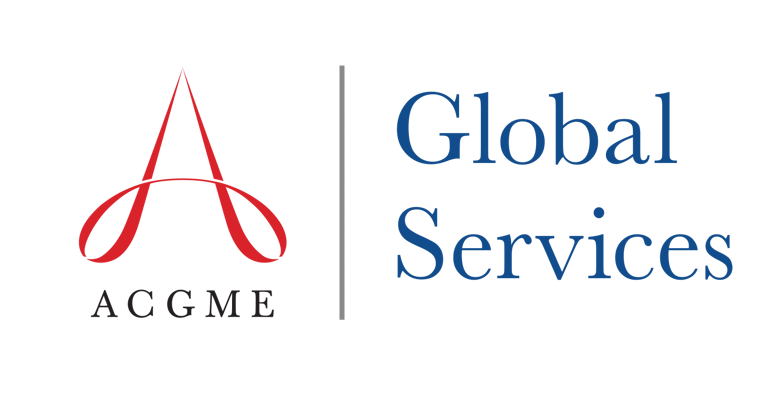ACGME Global Services, a department of the ACGME, was created to advance the ACGME Mission by working with global entities to enhance the quality of resident and fellow physicians’ education. Through this series, The ACGME and Global Health seeks to engage the global medical and health care communities in conversations on challenges facing global health that transcends borders.
This post includes input from leaders in the field from recent interviews.
The ability of societies to address the health care needs of their populations directly correlates with the availability of a health workforce trained to meet the complexities of working within the constraints of local conditions while continuing to advance educational and clinical outcomes. Post-graduate medical education (PGME) provides the necessary education and training to prepare physicians for unsupervised practice.
“PGME, as recognized, is the formal training in a specialty or subspecialty that occurs after graduation from medical school in concert with the standard of practice in the region or jurisdiction it is offered,” explained ACGME President and Chief Executive Officer Thomas J. Nasca, MD, MACP. In essence, he said, PGME prepares modern physicians to provide the standard of care for the public in their respective jurisdictions.
It has become widely accepted that medical school education alone does not produce physicians prepared for unsupervised practice; rather, it has become a prerequisite for specialization – even if the specialty is general medicine. “This is a recognition that coming out of medical school, individuals are not prepared to take on everything that walks in the door; it’s a recognition that we need to produce specialists, not just the nascent physician that comes out of medical school,” added Dr. Nasca.
PGME’s Vital Role in the Health Workforce
In the broad context of the provision of health care, PGME has evolved to become an indispensable component, advancing physician expertise in specialties required to meet the wide-ranging needs of the public. Health care delivery can be improved by gauging the ongoing and future needs of the public while aligning the educational experience of the health workforce, with PGME as an instrument to harmonize needs and resources.
PGME programs can be specifically designed to produce competence in key domains of local need. As noted by ACGME Board of Directors Vice Chair George Thibault, MD, referring to a Lancet report, “[Health care curriculum] should be drawn from the public and evaluated by its impact on the health of the public.”
Yet experts warn against systemic inertia, as preexisting systems tend to evolve mostly for purpose. “Historic commitments to systems and frameworks of education and oversight are not easily abandoned,” stated Dr. Nasca, while Dujeepa Samarasekera, FAMS, FRCP (Edin), senior director of National University of Singapore School of Medicine Centre for Medical Education and senior consultant of the Ministry of Health Singapore added, “We do know medicine is very traditional, very hierarchical, whether it is in the United States or UK or in Asia.”
The Sponsoring Institution 2025 report issued by the ACGME argued that, among other factors, the rapidly changing environment widening accessibility of health information by the population has become a primary force shaping health care delivery: “The scope of practice associated with many health care professions is expected to widen… As a result, more health care professionals will be expected to acquire advanced medical knowledge and skills.”
The importance of PGME in society cannot be overstated, giving physicians the knowledge to deliver on their social contract to care for the public, as well as guide the development of the future health workforce to face the challenges ahead.
The next entry in this series will discuss the role the ACGME, through ACGME Global Services, can play in promoting PGME worldwide in fulfillment of its Mission – regardless of borders.
The goal of this content series is to provoke discussion about issues that concern the global PGME community, enabling critical conversation that engages with stakeholders across borders, disciplines, and perspectives. We invite comments by email (global@acgme.org) and through Twitter and LinkedIn (with the hashtag #ACGMEGlobalServices). We also seek external voices in future posts in the ACGME and Global Health Blog series; email us if you would like to participate.

